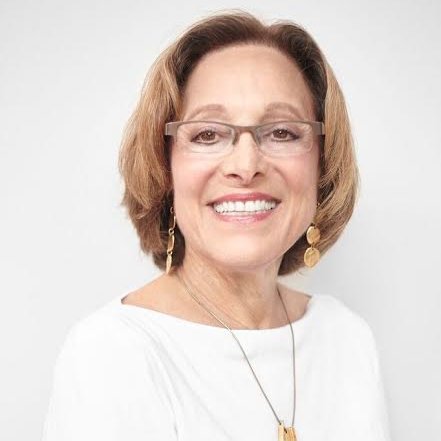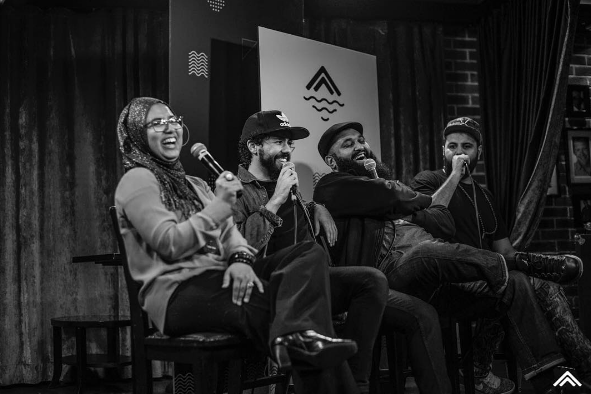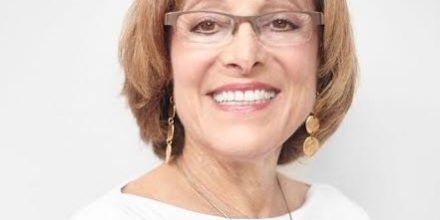This week, I’m featuring an interview with my good friend and author, Margot Bisnow, who has written Raising an Entrepreneur and is receiving rave reviews across business media.

I’m sharing my interview with her because there is a strong intersection between an entrepreneurial spirit in leaders and teams — and in innovation and success.
And, personally, I was interested in Margot’s book because I come from a family of entrepreneurs. My grandfather had his own business, and all of my parents’ four children (including me) have started and run several businesses. Is this entrepreneurial spirit in our DNA, or was it a result of influences from parents and mentors?
Probably both.
My experience has been that a leader can foster a spirit of entrepreneurship in themselves and their teams and it can be an advantage in many scenarios – including the all important team that is our family at home!
In her book, Margot, a successful public policy expert in her own right, wife and mother of two thriving entrepreneurs, interviews the moms of over fifty of today’s most successful innovators and—based on her findings—provides ten rules for raising confident, fearless, self-made individuals whose ideas and drive will change the world.
Margot’s son, Elliott, co-founded Bisnow Media (acquired by Wicks Group in 2016), served on the United Nations Foundation Global Entrepreneurs Council and co-founded The Get Well Soon Tour with his brother Austin.
He also founded Summit, which hosts dozens of gatherings a year, including its annual event, which Forbes called “The Davos of Generation Y.” Summit is an investor in Uber, Warby Parker and Change.org. It has spearheaded philanthropic efforts that include building a 71 square mile marine protected area in the Bahamas.
Margot’s other son, Austin, is a writer, producer, and pianist who has worked with legendary musicians such as John Legend, and produced the title track of David Guetta’s 2014 album, Listen. The album went No. 1 on Billboard’s Dance Electronic Chart the day it was released. His band, Magic Giant, is getting ready to release its first album, In the Wind. One of its songs, Set on Fire, has had four million streams.
Raising an Entrepreneur presents dozens of stories from the mothers of some of the most successful entrepreneurs today. Some say that entrepreneurs are the new rock stars—they’re the ones who face many obstacles to turn their passions into ingenious projects, because they’re willing to risk failure to make their dreams come true.
Margot writes about innovators from a wide range of cultural and socioeconomic backgrounds—including Under Armour Founder Kevin Plank and his Mom, Jayne, Geek Squad’s Robert Stephens and Nantucket Nectars’ Tom Scott.
She interviews nonprofit founders like Mama Hope’s Nyla Rodgers and Pencils of Promise’s Adam Braun, profit for purpose creators like TOMS Shoes’ Blake Mycoskie and FEED Projects’ Ellen Gustafson, activists like Mike de la Rocha and Erica Ford, and artists like actress Emmanuelle Chriqui, Grammy-nominated songwriter Benny Blanco, and film director Jon Chu, recently tapped by Hamilton’s Lin Manuel Miranda to direct his hit, In the Heights.
I’m honored that Margot interviewed me about my experiences as an entrepreneur and being a Mom of two budding entrepreneurs.
The book is a wonderful read; it’s so enjoyable and the stories are so inspiring that you don’t realize how much you’re learning. These inspirational interviews will provide guidance and support on nurturing change makers you lead at home and work.
Not every kid or team member will be an entrepreneur, but every person has something that makes them unique.
I hope you enjoy this interview:
 Why did you decide to write your book, Raising an Entrepreneur?
Why did you decide to write your book, Raising an Entrepreneur?
My son, Elliott, started Summit in 2008, an organization that builds community and places that catalyze entrepreneurship, creative achievement, and global change in an effort to create a more joyful world.

(Photo credit Summit)
As a proud parent, I started attending Summit events around the country and met all the amazing entrepreneurs in attendance. I would ask these entrepreneurs, “How did you turn out the way you did – willing to put everything on the line for your idea and take risks?”
Every entrepreneur I spoke to had one thing in common: a parent who believed in them. This discovery really struck a chord with me. I told my sons about these conversations, and they encouraged me to write a book about my findings.
I am so happy I decided to take that leap of faith, listen to my sons, and write the book. That was four years ago, and it has been a remarkable journey ever since.
What were some of the more surprising details you discovered while developing the book?
I was ambivalent when I started developing the book, but the more I discovered – and the more I engaged with entrepreneurs – the more I became excited to share their stories. Now, it’s much bigger than the stories. It’s the lessons learned from these stories that, I believe, are truly powerful.
When I started to develop the book, I also wanted to interview a very diverse group of entrepreneurs in terms of inputs (half men, half women, all races represented, diverse socioeconomic backgrounds, entrepreneurs with divorced parents, etc.) and outcomes (people starting for-profits, people starting nonprofits, artists, activists, etc.).
Despite all these differences, in key ways, these individuals were all raised the same. They all had a shared experience of being supported in whatever their passion or their entrepreneurial ambitions were when they were growing up. I was not expecting this when I set out to interview people for the book.
How could a manager use these ideas to spur an entrepreneurial spirit in their teams?
Blake Mycoskie of TOMS talks specifically about how being in a great family translates into being a great boss. He calls his approach to leading his company “servant leadership” – he learned this from his own parents. It’s about leading by example.
Part of leading by example is demonstrating to your family (or team) that it’s okay to take risks and fail. Blake shares how you shouldn’t be afraid to make mistakes – it is part of the learning process. Failure should be viewed as feedback, and not something to fear as an entrepreneur:
“If you extend more trust than you might be comfortable with, even though these mistakes may come at a price, you will be paid back in the long-term.” – Blake Mycoskie
After finishing the book, I realized that the rules for raising an entrepreneur (and the lessons learned from Blake Mycoskie) can be useful for anyone, whether they are an entrepreneur or not.
There are so many aspects of being entrepreneurial that anyone can benefit from – especially managers and teams.
What is one of the biggest misconceptions about raising a child to be an entrepreneur?
I have read so many articles with the headline, “How to make your kid an entrepreneur.” This completely misses the point! You can’t “make” your kid anything! Support them in what they want to do. Knowing that you believe in them will give them the courage to take risks. And if they don’t want to become an entrepreneur, that’s ok too.
The lesson of my book isn’t about making your kid an entrepreneur. It’s about listening to your child, observing what he or she loves, and supporting his or her passions. You need to relax as a parent and closely watch your kids, see where their adventures take them, and support them in their decisions.
What if my kids are already in high school or college? Is it too late to create an atmosphere that will foster entrepreneurship?
No, it’s never too late. You can create an atmosphere for entrepreneurship by supporting your kids in what they love, and by letting them know how proud you are of them for doing so well in the thing that they love.
Carol Dweck [Mindset] says that parents can sometimes instill fear of failure by using words like, “You better get an A on this exam!” This negative dialogue hinders children and causes them to not take risks or become entrepreneurial. Instead, use words like, “I am so proud of you for how hard you worked.” This positive support about effort can be incredibly powerful and helpful for a kid to hear at any age.
 The parents explored in my book didn’t punish their kids for failing or trying something that backfired. As a result, these kids developed into bold, risk taking, curious individuals.
The parents explored in my book didn’t punish their kids for failing or trying something that backfired. As a result, these kids developed into bold, risk taking, curious individuals.
How can grandparents, godparents, teachers, aunts, and uncles use the rules in their relationships with kids?
Most of the people I interviewed were influenced by their moms, but some people were influenced by their dads, grandmas, mentors, or teachers.
One entrepreneur I interviewed (Elizabeth McKee Gore, the founder of the project Nothing but Nets at the UN Foundation) was influenced 100% by her grandmother.
Additionally, a lot of entrepreneurs found mentors in their local communities who encouraged and supported them outside of school.
Bottom line: You can get entrepreneurial support from anybody.
Writing a book is an entrepreneurial venture. In your book, you describe a variety of entrepreneurs who have started a variety of businesses, nonprofits, and movements. Did you think of yourself as an entrepreneur? Did most of the people you profile in the book know they were entrepreneurs before they launched their successful endeavor?
I now think of myself as an entrepreneur after writing the book, but I didn’t when I initially embarked on this path. It’s weird to think of myself as an entrepreneur, but, through this process, I am trying to broaden the way the term “entrepreneurship” is defined.
In the book, I interviewed actress Emmanuelle Chriqui, and she didn’t think of herself as an entrepreneur – but she is! For her movie, she had to build a team, do PR, etc.
As another example, my son, Austin, started a band and I think of him as an entrepreneur. To build your band, you have to get an agent, hire a lawyer, recruit band members, etc. These are all activities of an entrepreneur.
I’ve only known you as a successful leader, though at some point, you were just beginning your career. Would you please share one funny or embarrassing moment in your professional development from the early days?
From early in my career, I have bounced around in a bunch of different jobs in the field of international development. I spent the 90s setting up economic think tanks in Europe, and through this, I got a job as the first Chief of Staff of the Millennium Challenge Corporation.
While in a conference, people were sitting around a table talking about an earthquake in Pakistan and were discussing how the aid to the region was handled. I didn’t even know there had been an earthquake. I felt like an idiot in that moment! I thought I knew so much about my job, but I realized there was so much more I still needed to learn.
Through this event, I learned that I need to keep my eyes open at all times in my career, and never assume I know everything.
What did you do to remedy the situation, and what did you learn from this experience?
I learned humility. I learned not to assume that you know something. You may have one piece of information, but that doesn’t mean you know everything.
What aspects of home and personal life are you unwilling to compromise on when it comes to competing priorities with your busy work schedule?
Grammar!
Also, time.
My family is the most important thing in my life, and both my sons live on the West Coast. Despite the distance, we rarely go more than a month without seeing our kids. We hop on planes a lot!
Finally, it’s important to be informed in work and life, so I spend 30 minutes daily reading the newspaper.
If you could go back in time and give your 22-year-old self one piece of advice, what would it be?
My advice would be: Relax. Everything will be fine.
If I had to do it all over again, I would be less involved, and spend less effort, trying to make everything perfect with raising my kids.
One of the moms I most admire is the mother of the YouTube CEO, Esther Wojcicki, who said, “Everything we do for our kids is one less thing they learn to do for themselves.” I didn’t know this when I started as a parent, and tried to be too involved.
I still think of when my son was in third grade, and one day left his homework assignment on his desk at home. So I drove the paper to school and gave it to the headmaster. He laughed at me and said, “What lesson will you have you taught your son if you bail him out? The lesson he will learn from missing the deadline is much more important than the grade he will receive if you turn it in for him.”
This remark really stood out to me. I ended up taking the paper back home!






